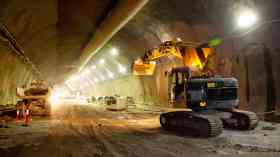Sue Robb of 4Children talks to Julie Laughton and Alison Britton from the Department for Education about the role of childminders in delivering the 30 hours free entitlement.
Greater representation of women needed in local government

A new report from the Fawcett Society has revealed that 97 per cent of councils are male dominated and there has been virtually no progress on women’s representation in local government in the 100 years since women first won the right to vote.
In the May 2018 council elections the proportion of women elected to local government in England increased by less than one percentage point, bringing the total proportion of female councillors to just 34 per cent. Looking at individual council data, Hastings, Kingston upon Thames and Islington saw respective increases of 16, 17 and 18 percentage points, highlighting the biggest council gains for women, while Redditch, Eastleigh, and Richmond upon Thames saw the largest drop in the proportion of women elected, with respective falls of 10, 10 and nine percentage points.
In fact, out of the 151 councils that held elections in 2018, 54 per cent saw the proportion of women increase. However, 15 per cent remained unchanged in terms of gender equality and 30 per cent returned fewer women than in 2017.
Sam Smethers, Fawcett Society chief executive, said: "This is really disappointing. We are literally crawling along. As we mark the centenary of women's suffrage, women’s representation across local government is stuck in the past. It is time for a strategic response. We call on government, political parties and local councils to act on the recommendations of the Local Government Commission, remove the barriers to women’s participation and make local government fit for the 21st century".
Marianne Overton, vice chair of the Local Government Association, said: “The report rightly identifies that progress must be made at a faster pace to ensure a greater representation of women in our local authorities. It is vital that local government better reflects the communities we represent and is inclusive in order to have the best skills and make the best possible decisions. Local government must be at the forefront of driving change, but it will be important to get the balance right between changing culture and imposing structures. Change will also require all political parties and Independents to fully engage and support a wide range of aspiring councillors.”
Company Focus
The Isuzu D-Max is a rugged workhorse that can fulfil a myriad of purposes as both a business and personal vehicle. Consequently, the D-Max is a particularly popular choice when it comes to farming, construction, and trade industries. Uncompromising in nature, the D-Max strives to be the ideal companion for many business needs.
Event Diary
UKREiiF has quickly become a must-attend in the industry calendar for Government departments and local authorities.
The multi-award-winning UK Construction Week (UKCW), is the UK’s biggest trade event for the built environment that connects the whole supply chain to be the catalyst for growth and positive change in the industry.
Supplier Profiles
Geo Energy
At GeoEnergy Design, we're on a mission to disrupt the traditional way heating and cooling ha
Latest Features
Professor Harith Alani, director of the Knowledge Management Institute at the Open University explains how AI can be used for good and bad.
Alex Lawrence, head of health & social care, techUK sets out techUK’s Five Point Plan for CareTech.

















